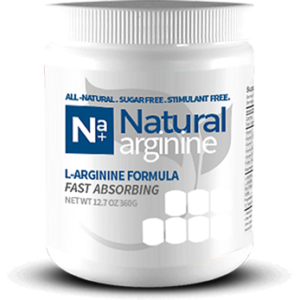Arginine is a non-essential amino acid. Hedin discovered arginine in mammal protein in 1895. This article will cover Arginine Definition and Science-Based Advantages.
What is Arginine
Arginine is an amino acid that forms protein. It is historically considered a non-essential amino acid, although it might be conditionally essential, signifying that few people make it or its requirement rises in certain situations.
Taking L-Arginine between meals is a good idea since it is an amino acid. Always get advice from your doctor or dietician based on your own circumstances.
L- and D-amino acids are two forms of amino acids, but only L-forms are produced in cells and incorporated into proteins.
Arginine’s Health Benefits: According to Science
Arginine is essential for the synthesis of creatine and the removal of nitrogen from the body. Arginine is an important component of the nitric oxide system and may affect the cardiovascular system through nitric oxide production. It also aids in the growth of muscles and is needed for muscle protein synthesis.
It may aid in the treatment of erectile dysfunction.
It has been found to have benefits in cases of Erectile Dysfunction as a precursor of nitric oxide. Nitric oxide is a chemical in the body that helps to keep blood vessel tone. This relaxes the muscle surrounding blood vessels. As a result, there is an increase in blood flow and hence better erectile function.
This benefit has also been investigated by researchers. Another study, for example, investigated L-Arginine and L-Citrulline levels in individuals with a similar condition. It was discovered that a group of males with erectile dysfunction had lower levels of amino acids compared to the non-ED control group.
Because of its capacity to assist maintain blood vessel tone, arginine is frequently included in male and female sexual health supplements.
Arginine Improves Energy Efficiency
Nitric oxide promotes blood flow to skeletal muscles, which is why it is frequently mentioned in connection with pre-workout products. The body uses nitric oxide to dilate blood vessels, allowing more oxygen and nutrient-rich blood to enter cells. Blood flow to muscles may aid recovery by delivering nutrients to them. This may result in improved energy efficiency, as well as reduced soreness after working out.
People who take L-arginine or citrulline supplements have a greater energy efficiency during exercise, according to one study. After taking either vitamin, the men in the study had a treadmill test that increased their aerobic capacity by 10 percent. Similar findings were found in a separate rat study – supplementation resulted in improved endurance and reduced tiredness at rest and during exercise.
Arginine has also been linked to fat burning, although the evidence is less compelling than that which indicates it improves energy efficiency. Obese individuals had lower levels of the enzymes that are needed to make arginine, according to one research. This might help to promote fat burning in the body.
Arginine has been shown to help lower blood pressure.
Only a few of the studies have suggested that Arginine supplementation may help those with high blood pressure. When given to healthy individuals with high blood pressure, exogenous arginine has been found in studies to help lower systolic and diastolic pressure. However, one study indicated that it might be more effective in those with mild high blood pressure.
Arginine is important for removing toxic ammonia.
Arginine is a naturally occurring amino acid that is involved in a variety of metabolic processes in the human body. It not only serves as a precursor for protein, but also as a source of urea (a waste product) and olyamines, proline, glutamate, creatine, and agmatine. Arginine is required for the urea cycle, which is the only route in humans that allows the excretion of harmful ammonia. Arginine is the sole source of nitric oxide synthesis, a vasodilator. Arginine has been found to be beneficial for an extensive variety of disorders, including coronary artery disease, congestive heart failure, hypertension, the common cold, herpes simplex infection, osteoporosis, and erectile dysfunction (male impotence).
Arginine and Insulin Sensitivity: What Is the Connection?
Low blood sugar (or type-2 diabetes) is also linked with a lack of Arginine in your system. Arginine, when taken in conjunction with other compounds, has been shown to help improve endothelial function in individuals with diabetes mellitus (DM). In a double-blind study, oral arginine supplementation (3 g three times a day for one month) improved blood sugar levels but did not completely cure them.
Arginine’s antioxidant effects may also aid in the prevention of diabetes. Arginine supplementation reduced fat accumulation and blood glucose concentrations in rats with metabolic syndrome (a disorder that includes high blood pressure, diabetes, and cardiovascular disease).
Is Arginine a safe supplement to take?
It is assumed to be safe for human consumption. There is no established dosage to date, but it is influenced by a number of variables including age, gender, activity, and so on. Always consult your doctor before taking any supplements.
According to studies, the dosage of arginine for Erectile Dysfunction ranges from 1 to 5 grams per day, whereas high blood pressure treatment may range from 6 to 30 grams for 2 to 24 weeks.
In conclusion, Arginine has been shown to improve energy efficiency during exercise, fat burning, lower blood pressure, cure Diabetes mellitus (DM), prevent Diabetes, and improve endothelial function in individuals with diabetes mellitus (DM). Arginine is assumed to be safe for human consumption.
contact your healthcare provider before beginning any supplement regimen. This article is not intended to diagnose or cure any disease. Continue reading about l-arginine side effects.












